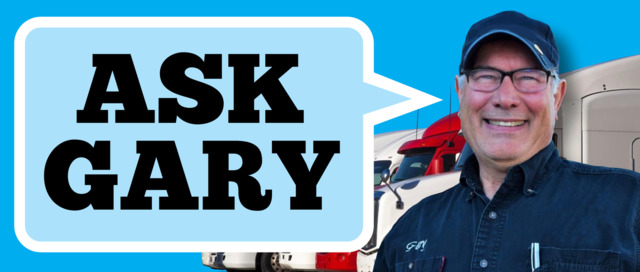 Ask Gary is a series detailing owner-operator business challenges and how operators can navigate toward success. Gary Buchs, a former Owner-Operator of the Year, spent 17 years as an independent contractor at Landstar before retiring in 2019. He now coaches owner-operators and also hosts the Truck Business Forum group on Facebook. Buchs can be reached at truck.biz.coach@gmail.com.
Ask Gary is a series detailing owner-operator business challenges and how operators can navigate toward success. Gary Buchs, a former Owner-Operator of the Year, spent 17 years as an independent contractor at Landstar before retiring in 2019. He now coaches owner-operators and also hosts the Truck Business Forum group on Facebook. Buchs can be reached at truck.biz.coach@gmail.com.
The situation: An owner-operator who had a solid year and turned a strong profit has found a tax preparer who told her she has “too much profit.” The preparer said she needs to find ways to spend down those hard-earned gains, possibly even buying a new truck, to avoid paying taxes. The owner-operator contacted the tax preparer because they promised to cut her tax liability to little or nothing. Should the operator start a spending spree to reduce her business’ income so as to avoid paying taxes? Or pony up and pay the taxes and spend the proceeds in other ways?
Gary’s fix: "Too much profit"? I would be leery of any accountant that says that. But there are too many tax preparers who sell themselves on that idea.
When I was an owner-operator, I was often told, “You should buy a new truck. Otherwise, you’ll have to pay taxes.” That doesn’t make sense. Why would I spend tens of thousands of dollars to avoid paying much less in taxes?
The point of being in business is to earn a profit, not to avoid paying taxes. That’s not to say you shouldn’t take advantage of available deductions, and that might include buying a truck or other business equipment, but you shouldn’t spend down your profits just to bring your tax bill to zero.
Doing so reflects a troubling mentality a lot of owner-operators have about their tax bill. It causes them to make bad decisions that might benefit them in the short-term but harm them greatly in the long-term.
I have run into owner-operators who will dump their accountant and try to find a new one if they have to pay taxes. Instead, look at profit as an opportunity to invest in yourself or your business.
One problem operators often have is they invest everything in just the truck and other depreciating assets. If you buy a new truck for $150,000 to lower your tax liability over three years, and you’re writing off an estimated $50,000 a year, you’ll still wind up with something worth only $30,000-$35,000 after three years. Had you just paid taxes on your profit, it would have been a lot less than $150,000.
We usually pay far less in taxes than we realize. For example, if you netted $100,000 as a sole proprietor, you can put 20% into a self-employed retirement account pre-tax. Then, take the qualified business income (QBI) change from the 2017 tax cuts, and you knock another 20% off of the remaining $80,000 – so now you’re down to $64,000. If you’re married, you can take $25,000 off for the standard income deduction, so that puts your taxable income at $39,000.
Not counting self-employment tax, your income tax bill would be $4,483, a tax rate of 11.5%. That’s far less than the presumed 35-40% I often hear owner-operators throwing around as their tax rate.
It’s also a lot less than $150,000 for a new truck, and it leaves you with about $60,000 in take home pay after taxes and after pre-tax retirement contributions. If you put some of that money in a post-tax retirement account (such as a Roth IRA), mutual fund, stocks, real estate -- any asset that's likely to appreciate -- that’s money that will be available for your future.
—Gary
Related: Are tax changes relative to equipment investment and depreciation enough to move you?
from Overdrive https://ift.tt/3r9XGYI



Sourced by Quik DMV - CADMV fleet registration services. Renew your registration online in only 10 minutes. No DMV visits, no lines, no phone mazes, and no appointments needed. Visit Quik, Click, Pay & Print your registration from home or any local print shop.

No comments:
Post a Comment